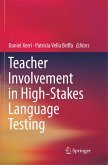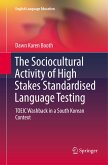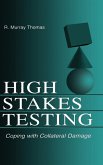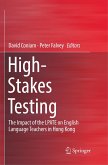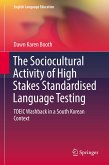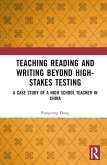The book's goal is to clarify for parents, the public, and policy makers what high stakes tests are and how their use affects our schools, children, and society. It explores the various uses, limitations, and paradoxical consequences of high stakes testing. The present context of testing and the reauthorization of No Child Left Behind make the proposed book timely and important. Current testing programs provide valuable information to teachers, parents, and policy-makers about students, schools, and school systems. But paradoxically, these programs have unintended yet predictable negative consequences for many students, teachers, and schools. It is essential that the public and policy-makers understand the scope and impacts that result from the inherent paradoxical nature of high-stakes testing. Testing is viewed by policy makers across party lines as an "objective" measure of student attainment and has become their tool of choice to drive educational "reform" and hold children, teachers, schools, and districts accountable. Bipartisan support for test-based accountability is firm. For example, on January of 2005 President Bush called on Congress to extend NCLB testing in math and science to freshmen, sophomores and juniors citing poor performance among high school students as a "warning and a call to action." (NYT 01/ 13/05) Senator Kennedy, a critic of the President, nonetheless supported the President's proposed high school testing provisions.
Hinweis: Dieser Artikel kann nur an eine deutsche Lieferadresse ausgeliefert werden.
Hinweis: Dieser Artikel kann nur an eine deutsche Lieferadresse ausgeliefert werden.



